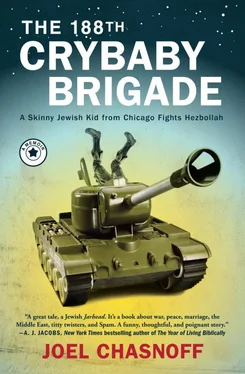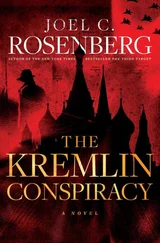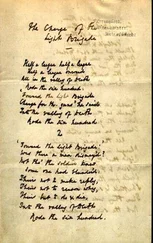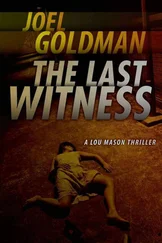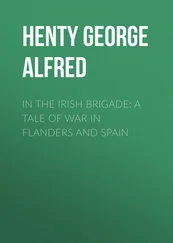“Seinfeld doesn’t talk about his family!” I blurted out.
“But Jerry’s so goddamn cute,” Lucien replied.
I stood up and slumped to the door.
“One more thing,” Lucien called. “Look at me.”
I turned around.
“You’ve got really thick eyebrows,” he said. “Much too thick for Hollywood.”
Outside the Comic Strip, it was midnight and warm. Since I had nowhere to be, I walked in big circles through the Upper East Side, past delis and bakeries, through the park, and then south on Central Park West to Times Square.
When I was in high school, my dad and I visited New York every winter for an annual father-son getaway. With no wheelchair to push and no little brothers dawdling behind, we’d conquer the city on foot at superhuman speed. Then, after dinner and a Broadway show, we’d walk to Times Square and stare up at the lights.
Alone this time, I jostled my way past the peanut sellers and Black Hebrews shouting biblical quotes into megaphones, past throngs of tourists and policemen on horseback. At 1 a.m. Times Square was a jukebox. High above, Joe Camel lit up and disappeared.
I walked to the pay phone on Forty-fifth Street, picked up the receiver, and dialed.
“I didn’t pass,” I said.
“Oh,” said my father. For a couple of moments, neither of us said a word. Then my dad said, “It’s a tough business. Even the great ones take years.”
I hung up the phone. Two weeks later, I was on a plane to Tel Aviv.

FIFTY-EIGHT SOLDIERS IN FORMATION, ONE SOLDIER GUARDING THE BUNK, AND CLEMENTE’S TAKING A SHIT
I am Israeli soldier number 5481287. I’ve been assigned to Platoon Two, Company B, Battalion 71 of the 188th Armored Brigade. I’m at the Armored School, in the south, halfway between Jordan and Egypt. It’s the 30th of July, day one of basic training, and I’m in shock that I’m actually here, in uniform, on a military base, a soldier in a foreign country’s army.
I’m dressed like a soldier but I look like a clown. My uniform’s three sizes too big, and it’s stiff, so it looks like I’m wearing a suit of green construction paper; I’d thought I would look sexy in uniform, but I don’t. I’ve also got a new look—I’m buzz-cut and shaved—and a new name: instead of Joel, I am now my Hebrew name, Yoel, and my last name, according to my dog tags, is Shetznitz.
“You misspelled my name,” I said to the guy at the dog tag machine.
“So don’t die,” he said, and shooed me out the door.
Yesterday morning, back at the Induction Center, I sat in a gated courtyard with hundreds of other new recruits, each with an entourage of family and friends who’d come to see him off. The atmosphere was like a tailgate party. Families picnicked and sang songs. At one table, friends took turns shaving their buddy’s head. When, finally, a soldier’s name was called over the loudspeaker, his friends marched him to the bus with claps, songs, kazoos, whistles, tambourines, and in one case, a trumpet. As they hugged good-bye, his parents—and sometimes even the new recruit—cried. Then the boy climbed onto a bus and rode off to become a man. It was a much more genuine coming-of-age ceremony than the typical American bar mitzvah.
Inside the Processing Center, teams of girl soldiers fingerprinted me, X-rayed my teeth, and cut my hair. I was then handed a paper cup and instructed to fill it. Behind the locked door of a bathroom stall, I unzipped my backpack and pulled out a Coke bottle one-third full with urine. The bottle was warm. I’ve got this strange condition called paruresis, a.k.a. “shy pee,” in which I can’t pee when I’m nervous. I knew the army would ask me to piss into a cup. So instead of taking my chances, I brought pee from home.
As I exited the bathroom stall, someone called, “Hey, bro.” Ambling toward me was a short kid with buzz-cut blond hair, an eyebrow ring, and baggy jeans much too large for his tiny frame. His eyes were bloodshot. He looked like a tripped-out Friedrich von Trapp.
“Smoke grass?” he whispered.
It was like I was right back in Brooklyn. “No thanks,” I said, and shook my head, but not too violently—I didn’t want to spill my cupful of piss. I slithered out and started for the door, but the kid pressed his hand into my chest and pinned me to the wall.
“How about it, brother?” he begged. “Can I borrow some piss?”
It wasn’t an issue of quantity—I had a Dixie cup nearly overflowing with healthy pee. A few drops of my piss could’ve meant one more Israeli soldier and a safer Jewish homeland. But if the girls in the urine lab found out, I’d have been kicked out of the Israeli Army before I was ever in. And what would I do when word of the scandal found its way back to Chicago?
You see, Rabbi, my son was all set to defend the Jewish state when he got caught sharing his pee with a reefer addict…
“Sorry,” I said, and bolted past him, my piss sloshing beneath the rim of my cup.
Three hours later, I found myself staring up at a leathery-faced officer from the Manpower Division.
“Nu?” he barked. “Have you decided where you’d like to serve?”
“Paratroopers,” I declared. I’d always dreamed of being a paratrooper, just like my idol, Yoni Netanyahu, the leader of the infamous Raid on Entebbe in July 1976, where a crack squad of Israeli soldiers rescued hijacked airline passengers in Uganda. After Yoni died in the raid, his letters were collected into a book called Self-Portrait of a Hero. In high school, I read Yoni’s book twice a year.
The officer opened a manila file folder and immediately snapped it shut. “Paratroopers is full. How about Tanks?”
I cleared my throat. Dorit had warned me that part of being an Israeli soldier was knowing how to stand up for myself. “With all due respect, sir,” I said, “I came from America to be a paratrooper. I refuse to leave this office until you grant my request.”
“You can go to Tanks, or you can go to jail,” he said.
“How about Tanks?” I said.
Which is why I’m now standing in bedroom 3, bunk 6 at the Armored School. The room is small, the size of a dorm room. Five rickety bunk beds stand pushed against the freshly whitewashed walls in the shape of a U. Above the door there’s an air-conditioning unit—one of the perks of the Armored Corps. (“Join Armored!” an Armored sergeant barked at the Induction Center. “You’ll get air-conditioning in your room!”) Scotch-taped to the doorway is a six-inch plastic mezuzah—the tiny case containing a piece of Torah parchment on the doorposts of Jewish homes and, apparently, army barracks. On the bed opposite the door, a kid named Ronen Peretz sits with his head in his hands. He has brown skin and thick eyeglasses. “Lo ma’amin!” he groans in Hebrew. “I can’t believe it.”
“What’s with him?” says one of my new roommates, a skinny kid who stuffs a pillow into a pillowcase.
“He lost his kit bag,” says a guy with glasses and a bumpy nose.
“I didn’t lose it—someone stole it!” Ronen Peretz whimpers. “It had my cell phone, my keys. I knew I never should’ve joined Armored!”
“Poor Ronen Peretz,” says the skinny guy. He unwraps a chocolate bar, shoves it front of my face. “Chocolate?”
I shake my head and walk outside into the courtyard and the ovenlike heat of the Negev Desert.
The Armored School is a four-square-kilometer island in an ocean of sand. The base is bordered on three sides by a chain-link fence topped with concertina wire; the fourth side, directly behind my bunk, is a firing range that opens onto miles of brown nothingness. On the far end of the base, near the front gate, are the dining hall, administrative offices, and an obstacle course consisting of red-and-white-striped climbing equipment that looks like giant candy canes. Behind those is a city of dormitories, classrooms, ammunition sheds, and a parking lot where thirty battle tanks sit in a line with their cannons pointing into the desert. A paved service road snakes through the various buildings. Olive-green jeeps zoom around the road at speeds well over ninety miles an hour. In the middle of the base is the town square—a concrete parade ground with an Israeli flag and a Coke machine. Every half hour, an air-conditioned bus screeches to a halt in the courtyard and spits a fresh batch of eighteen-year-old recruits into the steaming heat.
Читать дальше
